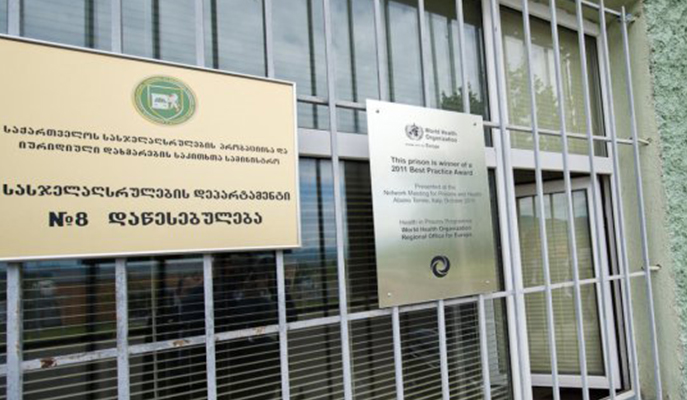Maka Shamugia
Life-sentenced convicts from Prison # 8 sent letter to Human Rights Center. According to their statement, part of life-sentenced prisoners started hunger-strike on January 26, 2015. They request to enforce the 28.12.2012 Amnesty Law and eliminate the discrimination against them.
“This law was adopted because of current situation in the judiciary system. We had consultations with the prosecutor’s office about the number of convicted prisoners, about how to select the crimes for the amnesty law and finally the general system was elaborated,” deputy chairman of the Human Rights and Civic Integration Committee at the Parliament of Georgia Gedevan Popkhadze told humanrights.ge.
As the convicts say 570 prisoners convicted for the similar incriminated offences had their sentences reduced at ¼ that directly discriminates them.
“The punishment term should have been reduced at ¼ for everybody but the court individually interpreted of the law. Law interpretation depended on the judge. Life-sentenced prisoners were not directly mentioned in the law but when the practical implementation refers to everybody, then they should also have their sentences reduced at ¼,” MP Gedevan Popkhadze said.
The life-sentenced prisoners wrote in their letter to Human Rights Center that they had sent collective petitions to the competent governmental officials and institutions several times but all in vain. The convicts state that pardon commission and local councils violate their rights when they do not discuss and satisfy their petitions although the prisoners meet all criteria set by the law.
Deputy director of Human Rights Center Tamar Avaliani said there was a fault in the law that was not properly addressed: “Later on, the court also incorrectly interpreted this law. The law stated that sentence for the prisoners convicted for grave crimes shall be reduced at ¼ but if a person is charged for particularly grave crime, he/she might be sentenced to life-imprisonment too. According to the court interpretation, the law referred only to the imprisonments with set terms. So, it was discriminatory approach to the life-sentenced prisoners.”
The petition of the prisoners reads that imprisonment terms are not postponed even when convicts are sick with grave diseases. At the same time, there is no mechanism that could make revision of the past arbitrary judgments possible.
“In accordance to the European standards, life-sentence does not mean to keep person in the prison whole life. After having served certain period of imprisonment, he/she shall have perspective and expectation that he/she will be freed. So, the state should take significant measures in this direction. We have stated several times that more liberal approach is needed for life-sentenced prisoners,” Tamar Avaliani said.
News
December 13, 2023
Ethnic minorities outside the peace dialogue
November 6, 2023
‘Peace’ agenda of political parties
Popular
Articles
February 13, 2024




